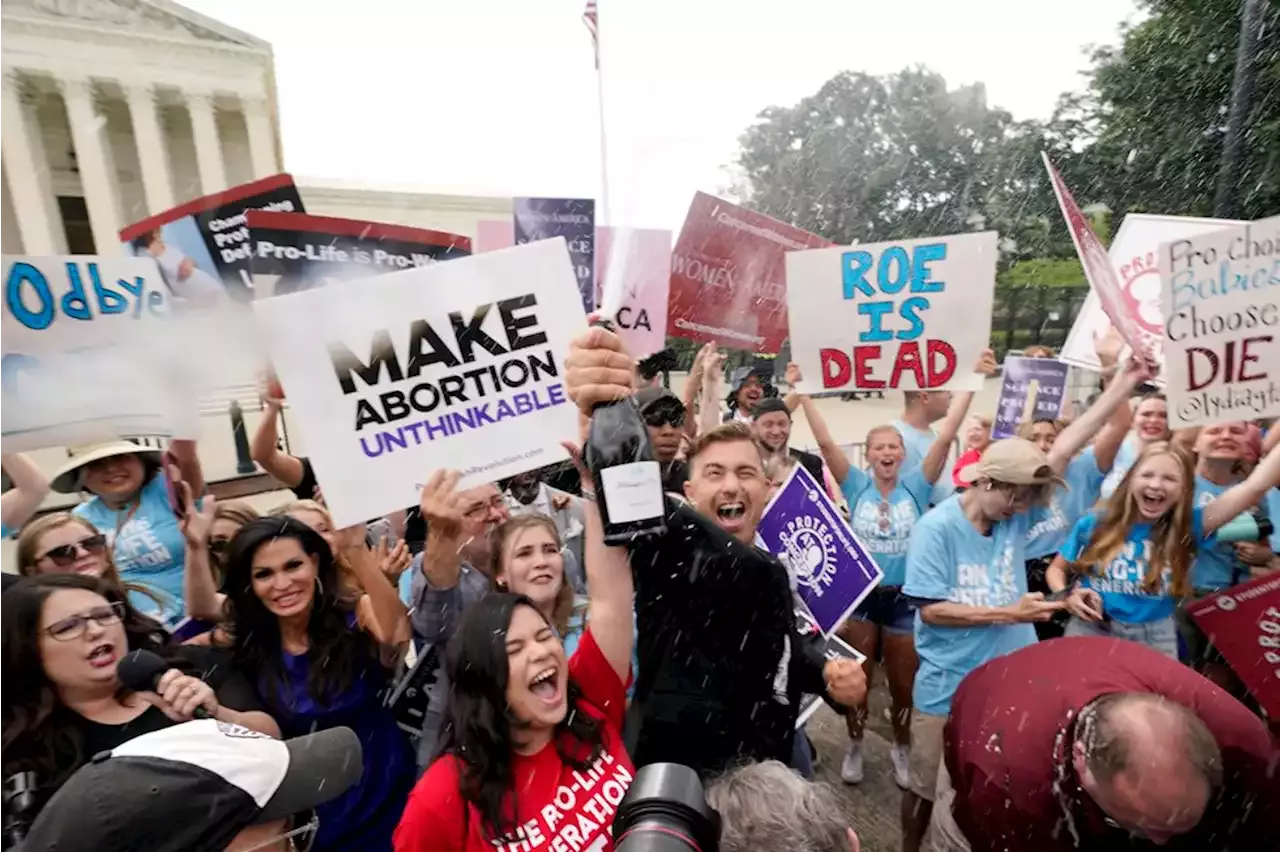The Supreme Court’s decision sets up potential legal fights between the states over whether providers and those who help women obtain abortions can be sued or prosecuted.
MAY CONTAIN GRAPHIC CONTENT: Protesters stand outside the Supreme Court as Roe v. Wade is overturned, striking down the constitutional right to abortion. Political control: Alabama has a Republican-controlled legislature and a Republican governor who want to ban or restrict access to abortions.
House Speaker Nancy Pelosi: "The radical Supreme Court is eviscerating Americans' rights and endangering their health and safety." Political control: Republicans currently hold a majority of seats in the state Legislature, but the House is controlled by a bipartisan coalition composed largely of Democrats. Fifty-nine of the Legislature’s 60 seats are up for election this year. Gov. Mike Dunleavy, a Republican who believes life begins at conception, is seeking reelection.
Background: Arizona law allows abortion through about 22 weeks, but the Legislature passed a 15-week abortion ban in March mirroring the Mississippi law currently being contested before the U.S. Supreme Court. It will take effect 90 days after the Legislature adjourns, which is expected in late June. Current restrictions include bans on abortions because of gender and a 2021 law that makes it a felony for a doctor to terminate a pregnancy because the child has a survivable genetic abnormality.
Background: Arkansas law currently bans most abortions 20 weeks into a woman’s pregnancy, with exceptions for rape, incest and the life of the mother. The state has several other bans that have been struck down or blocked by the courts in recent years, including an outright abortion ban enacted last year that doesn’t include rape or incest exceptions. That ban has been blocked by a federal judge, and the state has appealed the ruling.
Effect of Supreme Court ruling: Abortion will still be legal in California prior to the viability of a fetus. Democratic Gov. Gavin Newsom has vowed to make California a sanctuary for women who live in other states where abortion could be outlawed or severely restricted. It’s unknown how many women would come to California for abortions should Roe v. Wade be overturned, but the number is expected to be significant.
What’s next: It’s impossible to predict how many more patients from states surrounding Colorado will potentially seek care if Roe v. Wade is overturned. But the Texas law could induce more people to come. Oklahoma now has an early pregnancy abortion ban; Utah and Wyoming have trigger laws banning abortion if Roe is overturned; the Kansas Constitution protects abortion rights, but Republican lawmakers placed on an August primary ballot an initiative to overturn it.
Background: In 2017, Delaware became the first state following the election of President Donald Trump to codify the right to an abortion. A bill signed by Gov. John Carney, a Catholic, guarantees the unfettered right to an abortion before a fetus is deemed “viable.
Effect of Supreme Court ruling: Elected officials in Washington, D.C., fear Congress could move to restrict abortion access, particularly if Republicans recapture the House of Representatives in midterm elections later this year. President Joe Biden could theoretically veto such a move, but that protection is subject to political calculations and is not guaranteed.
What’s next: Florida’s 15-week ban goes into effect on July 1, and by then a U.S. Supreme Court decision is expected on a similar Mississippi ban after 15 weeks. However, the state constitutional challenge of the legislation will likely still be pending.
Background: Hawaii legalized abortion in 1970, when it became the first state in the nation to allow the procedure at a woman’s request. The state allows abortion until a fetus would be viable outside the womb. After that, it’s legal if a patient’s life or health is in danger. For many years, only licensed physicians could perform the procedure. Last year, the state enacted a law allowing advanced practice care nurses to carry out in-clinic abortions during the first trimester.
Effect of Supreme Court ruling: If the U.S. Supreme Court overturns Roe v. Wade, it will trigger a 2020 Idaho law banning all abortions except in cases of reported rape or incest, or to protect the mother’s life. That law would take effect 30 days after the decision. Under the law, the person performing the abortion could face a felony prosecution punishable by up to five years in prison.
What’s next: Like other states providing access to abortions, Illinois has seen a steady influx of patients crossing the state line for abortions in recent months and those numbers are expected to increase.The state could see an additional 20,000 to 30,000 patients seeking abortions in the first year if Roe is reversed, said Brigid Leahy, vice president of public policy for Planned Parenthood of Illinois.
Background: Iowa allows most abortions until the 20th week of pregnancy, when they’re banned except to save a patient’s life or prevent a substantial and irreversible physical impairment of a major bodily function. In 2018, the state Supreme Court declared access to abortion a “fundamental” right under the state constitution, granting stronger protections to abortion rights than the U.S. Constitution.
Effect of Supreme Court ruling: If the U.S. Supreme Court overturns Roe v. Wade, nothing will change immediately in Kansas, and that will be true even if the court merely upholds Mississippi’s ban at 15 weeks without explicitly overturning Roe. The state Supreme Court blocked enforcement of a 2015 legislative ban on a common second-trimester procedure, and abortion opponents fear a host of other rules could fall to legal challenges in the near future.
What’s next: Abortion-rights activists say the suspension of abortion services in April foreshadowed what would happen in Kentucky and other Republican-leaning states if Roe v. Wade is overturned. It likely would end several legal challenges pending against other Kentucky abortion laws including a 2018 measure that abortion-rights supporters say would effectively ban a standard abortion method in the second trimester of pregnancy. The U.S.
What’s next: It’s unclear if Louisiana’s three abortion clinics — in New Orleans, Baton Rouge and Shreveport — must close their doors immediately.Political control: Both chambers of the Maine Legislature, which has adjourned, are controlled by Democrats. Democratic Gov. Janet Mills has vowed to protect the right to an abortion, saying she will “fight with everything I have to protect reproductive rights.
Background: The right to abortion is protected in Maryland law. The state approved legislation in 1991 to protect abortion rights if the Supreme Court should ever restrict access. Voters approved the right in 1992 with 62% of the vote. Maryland law prohibits restrictions on abortion prior to viability. Maryland does not have a gestational limit. After viability, clinicians make the determination, based on clinical standard of care.
Effect of Supreme Court ruling: Baker has vowed to fight to keep abortion legal in Massachusetts, but it is his last year in office. Both Democratic candidates for governor -- state Sen. Sonia Chang-Diaz and Attorney General Maura Healey -- support abortion rights. Republican candidate Geoff Diehl said he believes in “the need to protect human life wherever and whenever possible.” Fellow GOP candidate Chris Doughty said he would “not seek any changes to our state’s abortion laws.
What’s next: Whitmer also filed suit asking the state’s Supreme Court to declare the 91-year-old law unconstitutional. It has not acted yet. Michigan abortion rights supporters hope to put the issue on ballots this fall. Their proposed constitutional amendment would affirm the right to make pregnancy-related decisions without interference, including about abortion and other reproductive services such as birth control.
Background: Mississippi law bans most abortions at 20 weeks. The state tried to enact a law in 2018 to ban most abortions after 15 weeks. This law is the basis for the case now at the Supreme Court, which could reshape abortion rights nationwide. A federal district judge blocked Mississippi’s 15-week law from taking effect, and an appeals court agreed. The Supreme Court heard arguments in December, and the Mississippi attorney general’s office argued justices should overturn Roe v.
Effect of Supreme Court ruling: The 2019 law contained a provision making it effective upon notification by the attorney general, governor or Legislature that the U.S. Supreme Court had overruled Roe v. Wade. Moments after Friday’s Supreme Court decision, Attorney General Eric Schmitt and Gov. Mike Parson filed the necessary paperwork for Missouri’s law to kick in. State statutes were subsequently updated online Friday saying the abortion-ban law had taken effect.
What’s next: The Montana Supreme Court will issue a decision on the preliminary injunction. The Montana Legislature also passed a referendum to ask voters this November whether they support a state law to require abortion providers to give lifesaving treatment to a fetus that is born alive after a botched abortion. Opponents argue federal law already offers those protections.
Background: Nevada voters enshrined the right to abortion in the state constitution in 1990. The law says a pregnancy can be terminated during the first 24 weeks, and after that to preserve the life or health of the pregnant person. It would take another statewide vote to change or repeal the law. Most Republican candidates for Congress, governor, state attorney general and other statewide posts say they oppose abortions.
Effect of Supreme Court ruling: If the U.S. Supreme Court overturns Roe v. Wade, nothing will change immediately in New Hampshire. The Legislature won’t return until fall, when there will be a one-day session to take up vetoed bills, and it would take a two-thirds majority vote to introduce new legislation then.
What’s next: Murphy has proposed a host of new abortion-related measures, but the Legislature has not taken them up yet. One aims to let a wider range of medical providers perform the most common type of abortion. Another would create a fund so advanced practice registered nurses, physician’s assistants and certified nurse midwives can provide abortion services. The source and amount of funding wasn’t defined.
Österreich Neuesten Nachrichten, Österreich Schlagzeilen
Similar News:Sie können auch ähnliche Nachrichten wie diese lesen, die wir aus anderen Nachrichtenquellen gesammelt haben.
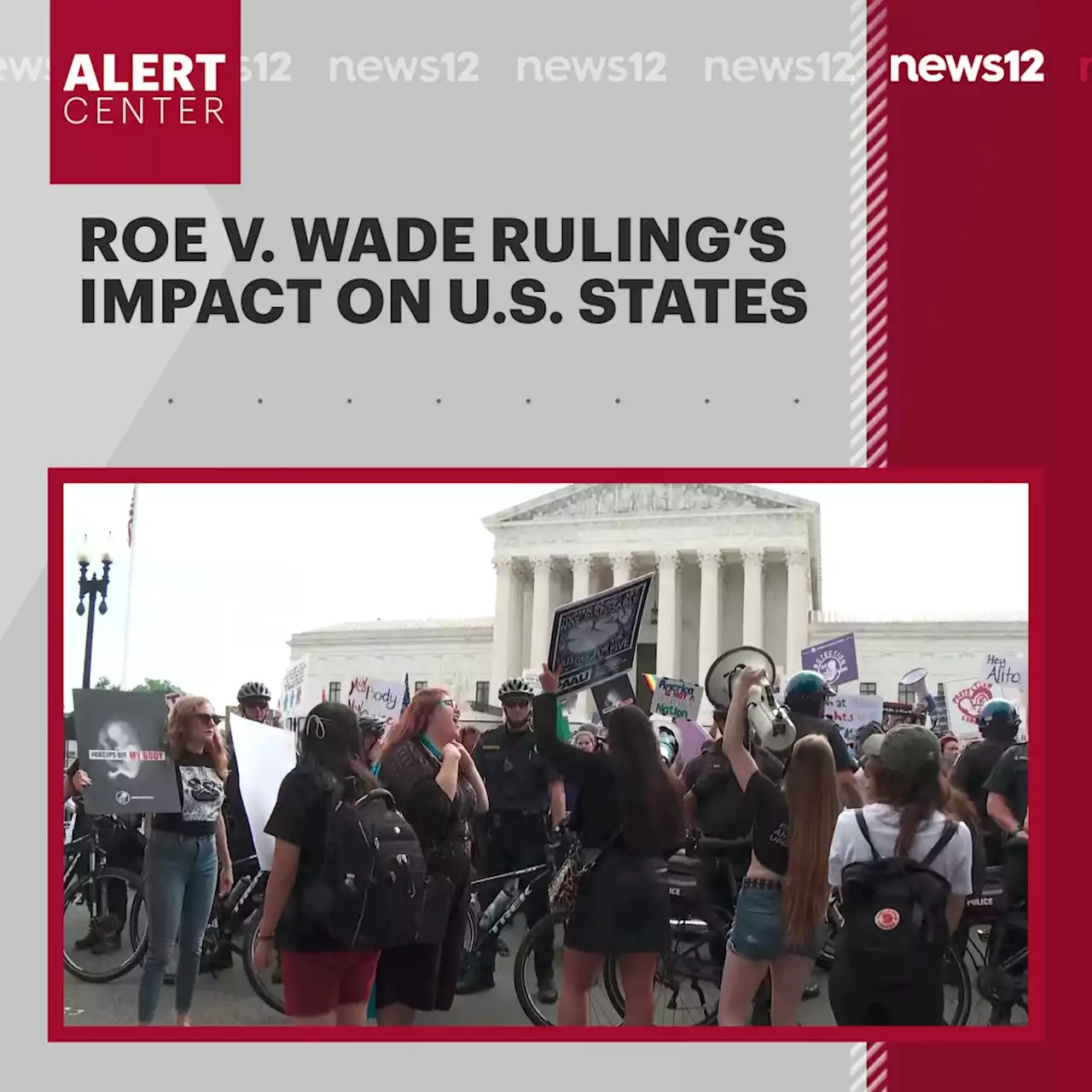 How U.S. states have banned, limited or protected abortionThe U.S. Supreme Court on Friday overturned Roe v. Wade, the 1973 decision that had provided a constitutional right to abortion. The ruling is expected to lead to abortion bans in roughly half the states.
How U.S. states have banned, limited or protected abortionThe U.S. Supreme Court on Friday overturned Roe v. Wade, the 1973 decision that had provided a constitutional right to abortion. The ruling is expected to lead to abortion bans in roughly half the states.
Weiterlesen »
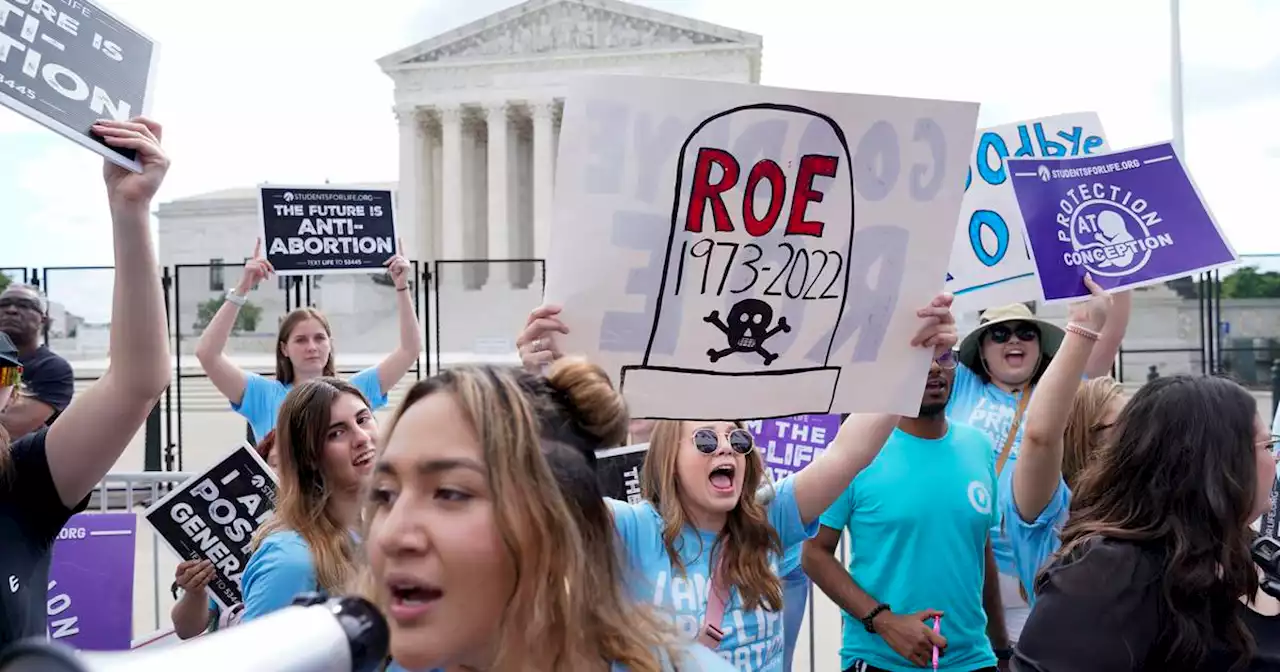 How every U.S. state has banned, limited or protected abortionThe Supreme Court ruling is expected to lead to abortion bans in roughly half the states. In anticipation of the decision, several states led by Democrats have taken steps to protect abortion access.
How every U.S. state has banned, limited or protected abortionThe Supreme Court ruling is expected to lead to abortion bans in roughly half the states. In anticipation of the decision, several states led by Democrats have taken steps to protect abortion access.
Weiterlesen »
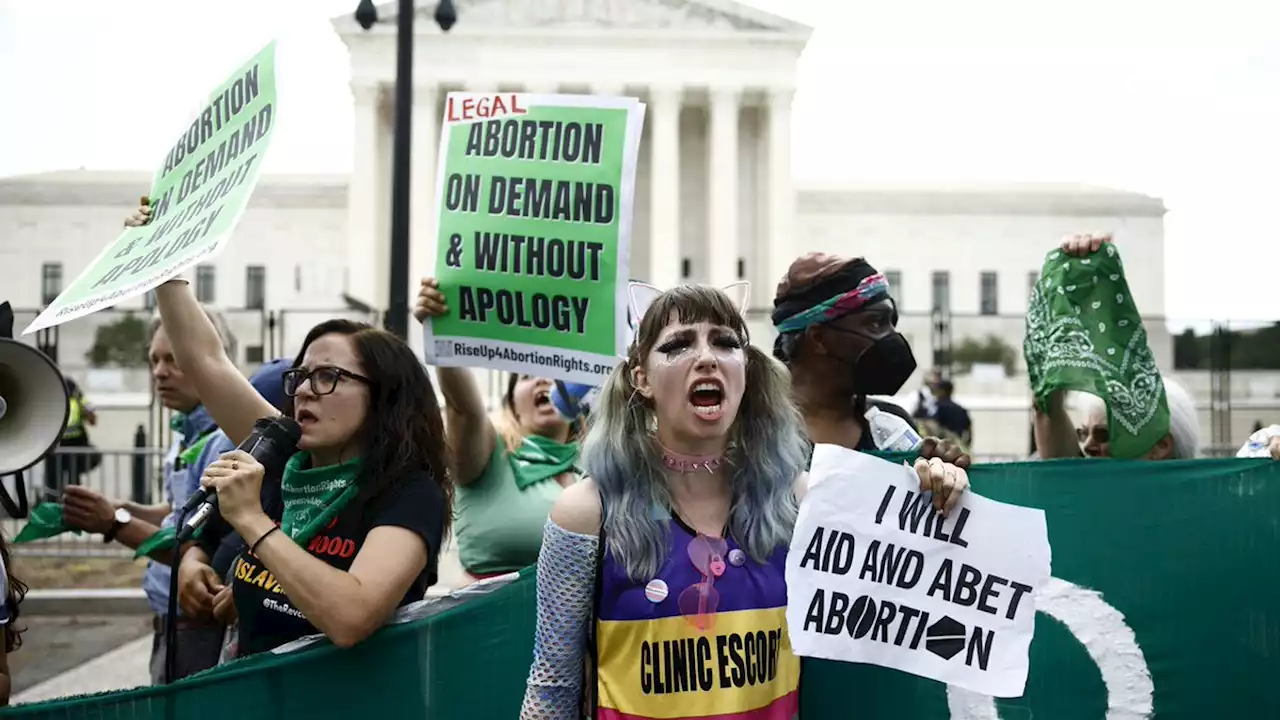 The Supreme Court Has Officially Overturned Roe v. WadeNow almost half of U.S. states are expected to outright ban or severely limit access to abortion.
The Supreme Court Has Officially Overturned Roe v. WadeNow almost half of U.S. states are expected to outright ban or severely limit access to abortion.
Weiterlesen »
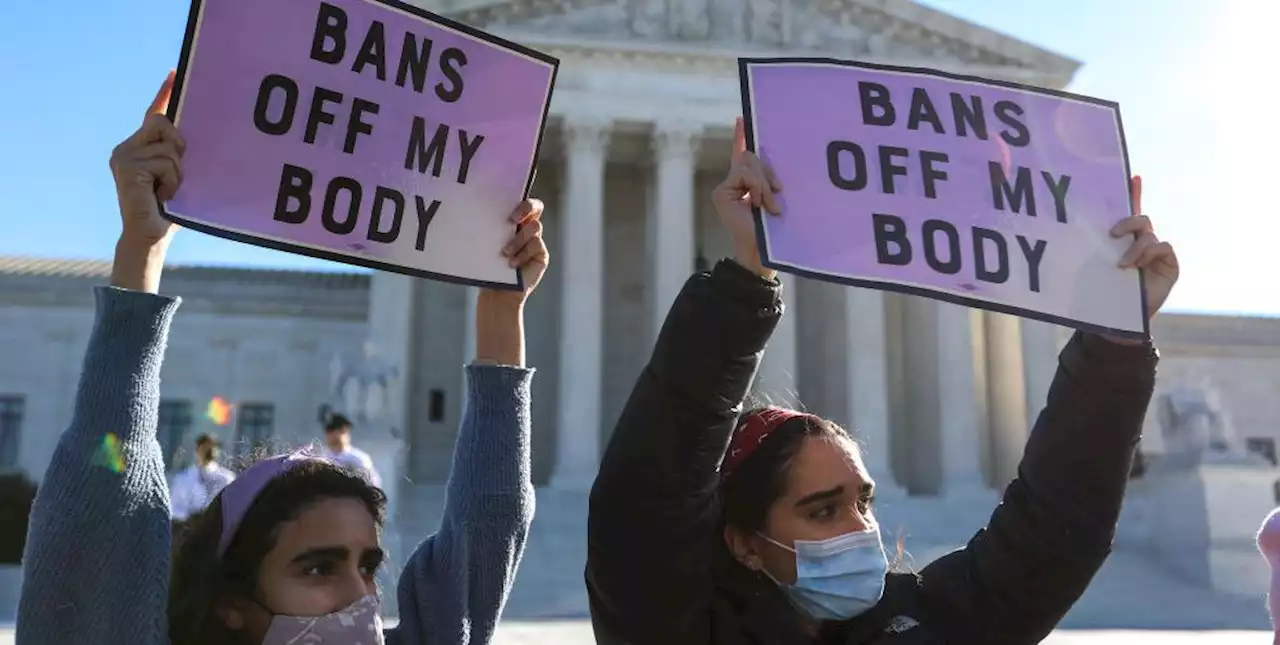 Roe v. Wade Has Been OverturnedAbortion is no longer a constitutionally protected right in the United States.
Roe v. Wade Has Been OverturnedAbortion is no longer a constitutionally protected right in the United States.
Weiterlesen »
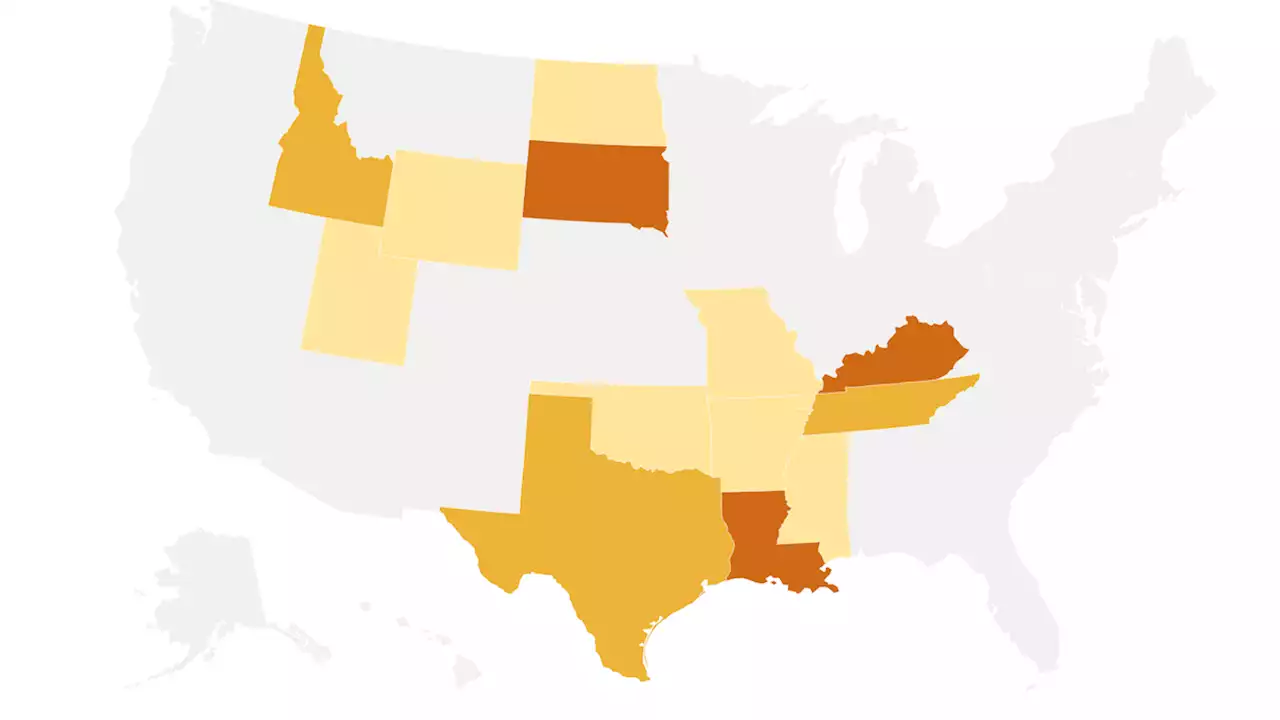 Abortion Will Be Banned in These 13 States With 'Trigger Laws'At least 13 states, mainly in the South and Midwest, have passed so-called 'trigger laws,' legislation effectively banning abortion that is ready to be enforced in the wake of the pivotal U.S. Supreme Court opinion.
Abortion Will Be Banned in These 13 States With 'Trigger Laws'At least 13 states, mainly in the South and Midwest, have passed so-called 'trigger laws,' legislation effectively banning abortion that is ready to be enforced in the wake of the pivotal U.S. Supreme Court opinion.
Weiterlesen »
